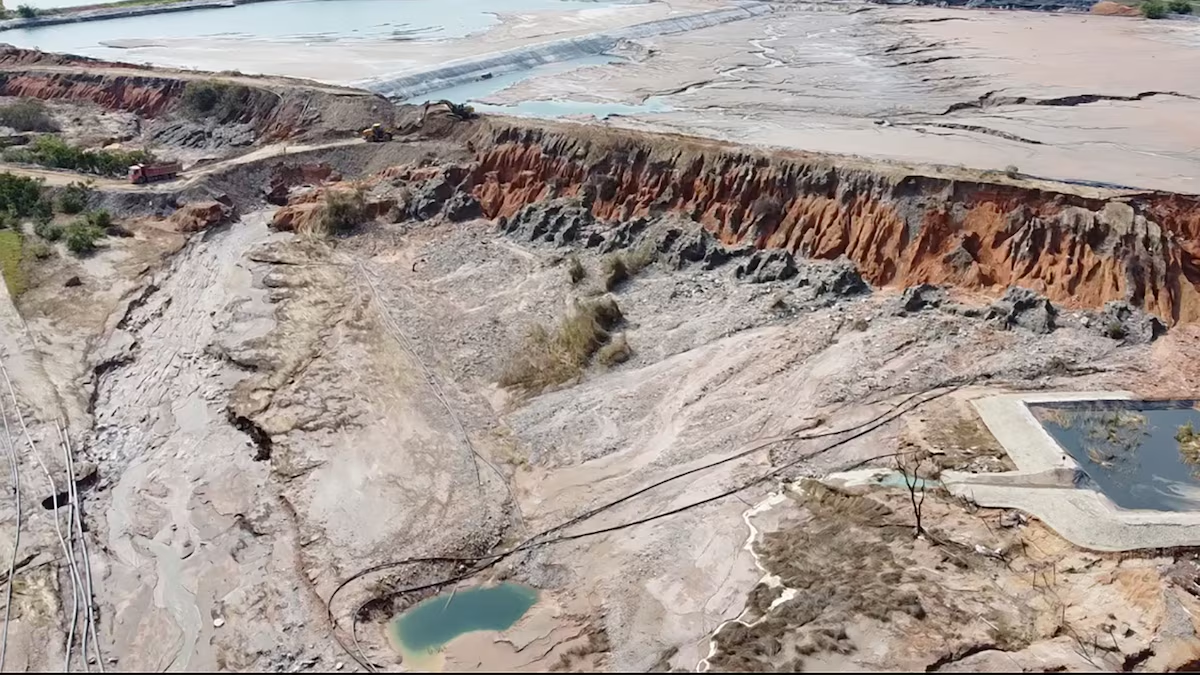Zambia, a nation rich in copper and other mineral resources, has long been a focal point for global mining giants, particularly Chinese companies seeking access to critical raw materials. For years, these investments have been presented as mutually beneficial partnerships, providing Zambia with jobs and infrastructure while securing China’s supply chains. However, recent developments have cast a long shadow over these ventures. A major lawsuit has been filed against several Chinese mining companies operating in Zambia, accusing them of causing an environmental disaster with devastating impacts on local communities, water systems, and agricultural lands. This legal battle is not just about compensation but also about accountability, sovereignty, and the future of sustainable mining in Africa.
- Background of Chinese Mining Operations in Zambia
- The Environmental Disaster at the Center of the Lawsuit
- The Legal Battle and Its Implications
- Voices from the Ground
- Government Response and Political Pressure
- Global Reactions and International Pressure
- The Broader Debate on Sustainable Mining
- Economic Stakes for Zambia
- Future Scenarios: What Comes Next
- FAQs
- What is the lawsuit against Chinese mining companies in Zambia about?
- How has the environmental disaster affected local communities?
- What are the plaintiffs demanding in the lawsuit?
- How has the Zambian government responded?
- Why is this lawsuit significant beyond Zambia?
- What role does China play in Zambia’s mining industry?
- Conclusion
The case has gained international attention, highlighting the tension between economic development and environmental protection, and raising questions about the responsibilities of foreign corporations in developing countries. As Zambia positions itself as one of Africa’s fastest-growing economies, the fallout from this lawsuit could redefine its approach to foreign investment and reshape global debates on corporate responsibility in the mining sector.
Background of Chinese Mining Operations in Zambia
Zambia is the second-largest producer of copper in Africa and one of the top ten producers in the world. The mineral accounts for over 70% of Zambia’s export earnings, making it a critical pillar of the economy. China, being the world’s largest consumer of copper, has heavily invested in Zambia over the last two decades. Chinese companies have acquired large stakes in mining operations, from copper to cobalt, often securing long-term agreements with the Zambian government.
While these partnerships have provided jobs and infrastructure, they have also sparked controversy. Reports over the years have accused Chinese mining companies of poor labor practices, disregard for safety standards, and limited regard for the environment. This latest lawsuit marks a significant escalation, focusing specifically on environmental degradation that residents argue has disrupted livelihoods and caused long-lasting harm.
The Environmental Disaster at the Center of the Lawsuit
At the core of the lawsuit is an environmental catastrophe linked to mining operations in Zambia’s Copperbelt region. Local communities allege that toxic waste from mining activities has seeped into rivers and underground water sources, poisoning drinking water, killing fish, and rendering farmland infertile. Crops have reportedly withered due to contaminated soil, and livestock deaths have been documented in villages near the mines.
Environmental experts have confirmed elevated levels of heavy metals such as lead, arsenic, and cadmium in water samples collected around the mining zones. These substances pose severe health risks, including kidney damage, developmental disorders in children, and increased cancer risk. Villagers recount stories of children falling ill after drinking river water and farmers losing their harvests season after season.
For many, the disaster is not just an environmental issue but a question of survival. Communities that have relied on farming and fishing for generations now face economic collapse, forcing them to depend on aid or migrate in search of livelihoods.
The Legal Battle and Its Implications
The lawsuit, filed by a coalition of Zambian communities and environmental advocacy groups, accuses the Chinese mining companies of negligence, violation of environmental regulations, and breach of human rights. The plaintiffs are seeking compensation for damages, medical assistance for affected families, and stricter oversight of mining operations.
Lawyers representing the communities argue that the companies prioritized profits over sustainability, ignoring both Zambian environmental laws and international guidelines. They point to repeated warnings from local regulators that went unheeded, leading to unchecked pollution.
If successful, the lawsuit could set a legal precedent not only in Zambia but across Africa, where foreign mining companies often operate in regions with weak regulatory enforcement. The case may embolden other communities to take legal action, demanding accountability for environmental and human rights abuses.
Voices from the Ground
The human impact of the environmental disaster is best understood through the voices of those affected. In interviews with local media, residents have described how their lives have been upended. A farmer from the Copperbelt region recounted how his maize fields, once his family’s main source of income, turned barren after nearby mining waste flooded into his land. Fishermen describe once-bountiful rivers now devoid of fish, while mothers speak of children developing strange rashes and stomach illnesses.
One local activist said, “We welcomed these companies because we were told they would bring jobs and development. Instead, they have brought sickness, hunger, and death to our communities. We want justice.”
Government Response and Political Pressure
The Zambian government finds itself in a difficult position. On one hand, it relies heavily on Chinese investments to sustain its economy and infrastructure projects. On the other, it faces growing domestic pressure to hold foreign companies accountable. In recent months, government officials have pledged to strengthen environmental oversight and enforce stricter penalties for violations.
However, critics argue that Zambia’s reliance on Chinese loans and trade ties may limit its willingness to push too hard. China remains one of Zambia’s largest creditors, and some fear that aggressive action could jeopardize financial aid and future investment. This political balancing act underscores the broader challenge facing many African nations—how to attract foreign investment while protecting their citizens and environment.
Global Reactions and International Pressure
The lawsuit has reverberated beyond Zambia, drawing attention from international human rights groups, environmental organizations, and foreign governments. Amnesty International and Human Rights Watch have both called for independent investigations into the allegations, stressing the need for corporate accountability in extractive industries.
Western governments, particularly in Europe, are closely watching the case as they consider new regulations on supply chains to ensure imported minerals are sourced responsibly. For China, the lawsuit adds to growing scrutiny of its overseas investments, particularly under the Belt and Road Initiative. Critics argue that while Chinese companies have delivered infrastructure and economic growth, they often do so at the expense of environmental and social standards.
The Broader Debate on Sustainable Mining
This case also brings to the forefront the larger debate on sustainable mining. As the global demand for critical minerals such as copper, cobalt, and lithium surges, questions arise about how these resources can be extracted without causing irreparable harm to people and the planet.
Experts argue that mining companies, regardless of nationality, must embrace stricter environmental, social, and governance (ESG) standards. “Mining can bring tremendous benefits, but only if done responsibly,” said a mining analyst from the University of Cape Town. “If companies cut corners, the costs to communities and the environment will far outweigh any economic gains.”
The lawsuit against Chinese mining companies in Zambia may serve as a wake-up call for the industry, forcing corporations to prioritize sustainability or risk facing reputational damage and costly legal battles.
Economic Stakes for Zambia
The case also highlights the economic stakes for Zambia. While mining provides much-needed revenue, overreliance on foreign corporations exposes the country to exploitation and environmental risks. Economists warn that unless Zambia strengthens its regulatory framework and diversifies its economy, it may continue to face cycles of boom and bust linked to commodity markets.
The government has an opportunity to use this lawsuit as a turning point—by enforcing stricter environmental standards, renegotiating contracts with foreign companies, and investing in green technologies. Doing so could position Zambia as a leader in sustainable mining practices, attracting investment while protecting its natural resources.
Future Scenarios: What Comes Next
The outcome of the lawsuit remains uncertain. If the plaintiffs win, Chinese companies may be forced to pay substantial damages and implement new environmental safeguards. Such a verdict would send shockwaves through the global mining industry, signaling that corporations cannot ignore accountability in developing nations.
If the case fails, however, communities may lose hope in legal remedies, fueling unrest and damaging trust in government institutions. Either way, the lawsuit has already sparked critical conversations about justice, sovereignty, and corporate ethics that will shape Zambia’s future for years to come.
FAQs
What is the lawsuit against Chinese mining companies in Zambia about?
The lawsuit accuses several Chinese mining companies of causing severe environmental damage in Zambia’s Copperbelt region by polluting water sources, damaging farmland, and endangering public health.
How has the environmental disaster affected local communities?
Communities near the mines report contaminated drinking water, loss of crops, death of livestock, and increased health issues such as rashes, stomach illnesses, and long-term risks from heavy metal exposure.
What are the plaintiffs demanding in the lawsuit?
The plaintiffs seek compensation for damages, medical support for affected families, and stricter environmental regulations to prevent future harm.
How has the Zambian government responded?
The government has pledged to strengthen environmental oversight but faces criticism for being too dependent on Chinese investment to take strong action.
Why is this lawsuit significant beyond Zambia?
The case could set a precedent for holding foreign mining companies accountable in Africa and influence global debates on corporate responsibility, sustainability, and supply chain ethics.
What role does China play in Zambia’s mining industry?
China is the largest foreign investor in Zambia’s mining sector, primarily due to its demand for copper and cobalt. This relationship has provided economic growth but also sparked controversies over labor, environmental, and social issues.
Conclusion
The lawsuit against Chinese mining companies in Zambia is more than just a legal dispute—it is a battle over justice, accountability, and the future of sustainable development in Africa. At its heart are communities whose lives and livelihoods have been shattered by environmental destruction, demanding recognition and redress. The outcome will not only shape Zambia’s mining industry but could also influence how the world approaches corporate responsibility in developing nations.
As the world transitions to a greener economy that depends heavily on minerals like copper and cobalt, the lessons from Zambia are clear: economic progress cannot come at the expense of people and the planet. The case serves as a powerful reminder that sustainability must be at the center of development, and that communities deserve both prosperity and protection in the face of global demand for resources.







